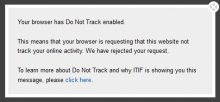Google faces EU pressure to change privacy policy
European Union regulators want Google to make changes to its new privacy policy to protect the rights of its users, the EU's national data protection regulators said in a letter to the US internet company, which was seen by Reuters.
The letter, which stopped short of declaring Google's approach to collecting user data illegal, follows an investigation led by France's Commission Nationale de l'Informatique (CNIL) that began in February.













































































